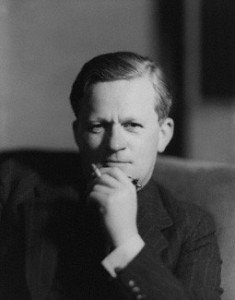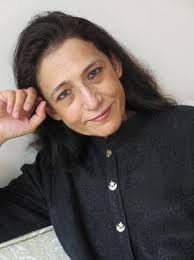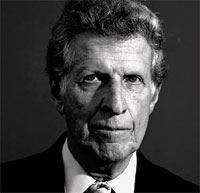Peace Watch » Editor's Take » Quaid-e-Azam, Kashmir and His Biographers
Quaid-e-Azam, Kashmir and His Biographers
January 7th, 2014 | Comments Off on Quaid-e-Azam, Kashmir and His Biographers
Z.G. Muhammad
I have an admiration for some of the biographers of Mahatma Gandhi, for documenting his life candidly and bringing out some aspect of his life that would otherwise have been slaughtered by hagiologists. On reading; ‘Gandhi Before India’, written by a contemporary Indian historian, Ramachandra Guha, I became envious of the author for his art of storytelling. The book undoubtedly, as author in his last chapter, ‘How The Mahatma Was Made’, writes, has ‘reconstructed Mohandas K Gandhi less known and sometimes forgotten years in Porbandar, Rajkot, Bombay, London, Durban and Johannesburg, on the basis of contemporary records rather than on retrospective accounts.” While hailing, some biographers of Gandhi or Ramachandra Guha for his ‘reconstructing’, Gandhi’s story before arriving in India,  I have a complaint against some of the important biographers of Quaid-e-Azam, Mohammad Ali Jinnah.
I have a complaint against some of the important biographers of Quaid-e-Azam, Mohammad Ali Jinnah.
It is not to suggest, that the biographies of Quaid like “Jinnah Creator of Pakistan” by Hector Bolitho, “Jinnah of Pakistan” by Stanley Wolpert, Jinnah, Pakistan and Islamic Identity: The Search for Saladin by Akbar S. Ahmed and The Sole Spokesman: Jinnah, the Muslim League and the Demand of Pakistan by Ayesha Jalal are not candidly written. These are monumental works, which undoubtedly tell story of the man whose ‘place of primacy in the history of the sub-continent looms like a lofty minaret over the achievements of his many contemporaries.’ ‘For more than quarter of a century his biographer Stanly Wolpert ‘was intrigued by apparent paradox of Jinnah’s strange story,’ Which in his words, ‘had never been told in all fascinating complexity of its brilliant light and tragic darkness.”
 It is not Stanly Wolpert, Hector Bolitho and few other biographers mentioned above, who only have weaved the story of Jinnah and birth of Pakistan with all brilliance and frankness. Nevertheless, even in many of biographies written by Indian authors like “Jinnah- India-Partition and Pakistan” by Jaswant Singh, he automatically emerges as the most towering leader of the sub-continent. Even, in the biographies like “The Man Who Divided Indian” written by second grade biographers like Rafiq Zakaria with all their myopic political understanding of Sub-Continental politics he emerges as man who was ‘above religious prejudices’.
It is not Stanly Wolpert, Hector Bolitho and few other biographers mentioned above, who only have weaved the story of Jinnah and birth of Pakistan with all brilliance and frankness. Nevertheless, even in many of biographies written by Indian authors like “Jinnah- India-Partition and Pakistan” by Jaswant Singh, he automatically emerges as the most towering leader of the sub-continent. Even, in the biographies like “The Man Who Divided Indian” written by second grade biographers like Rafiq Zakaria with all their myopic political understanding of Sub-Continental politics he emerges as man who was ‘above religious prejudices’.
There can be no denying that most of the biographers of Jinnah have written about his intense involvement with Kashmir in 1947. Even his biographers Bolitho and Wolpert sound sympathetic towards him for his intense concern in 1947 for future of Kashmir despite his ‘falling health.’ Wolpert subtly suggests that Jinnah wanted to fly to New York for the UN debate on Kashmir- but “he had no strength to fly’. My complaint against his major biographers including our own Dr. Sheikh Mohammad Iqbal author of “Ingenious, Ingenious, Jinnah and Pakistan Movement’ is that they have not even mentioned his three visits to Kashmir, 1929 1936 and 1944 even footnotes.
His visit to Kashmir in 1944 was political and not personal. It was watershed in the history of Kashmir. Some authors have recorded that he visited in 1920 and 1926 also. His earlier visits might have been personal but for a biographer these visits become important, as during this period also he was towering leader of the Indian subcontinent. Kashmir historians have documented his political activities in Kashmir in 1936 and 1944- but 1944 visit had more than that meets the eye.
 On May 8, 1944, accompanied by the leader of Jammu and Kashmir Muslim Conference he reached Jammu via Sialkot. At Jammu, he was greeted by surging crowds. On May 9, 1944 accompanied by Bakshi Ghulam Mohammad and Choudhry Ghulam Abbass he left Jammu. At Islamabad, the Muslim Conference and the National Conference accorded him a rousing reception. Mirwaiz Mohammad Yusuf Shah and Mirza Mohammad Afzal Beg received him on his arrival in this town. On 10 May 1944, Jinnah arrived at Srinagar and addressed a public meeting organized by the National Conference at Partap Park. Muslim Conference President Chaudhry Abbass was also present on the dais. Sheikh in his autobiography claims that more than a hundred thousand people were present in the meeting. After this, Mohammad Ali Jinnah addressed another massive public meeting organized by the Muslim Conference. Mirwaiz Mohammad Yusuf Shah was in the vanguard.
On May 8, 1944, accompanied by the leader of Jammu and Kashmir Muslim Conference he reached Jammu via Sialkot. At Jammu, he was greeted by surging crowds. On May 9, 1944 accompanied by Bakshi Ghulam Mohammad and Choudhry Ghulam Abbass he left Jammu. At Islamabad, the Muslim Conference and the National Conference accorded him a rousing reception. Mirwaiz Mohammad Yusuf Shah and Mirza Mohammad Afzal Beg received him on his arrival in this town. On 10 May 1944, Jinnah arrived at Srinagar and addressed a public meeting organized by the National Conference at Partap Park. Muslim Conference President Chaudhry Abbass was also present on the dais. Sheikh in his autobiography claims that more than a hundred thousand people were present in the meeting. After this, Mohammad Ali Jinnah addressed another massive public meeting organized by the Muslim Conference. Mirwaiz Mohammad Yusuf Shah was in the vanguard.
Sheikh in his autobiography writes ‘M.A. Jinnah stayed Nishat in the House of Amjad Ali Khan and many people called on him.’ Most important engagement of Mohammad Ali Jinnah in Kashmir that caused strong waves in the State politics was his participation in the thirteenth convention of the Muslim Conference held on June 16-17, 1944 at Muslim Park- now converted into shanty market by the Jamia Masjid Awqaf. Thousands from all parts of Jammu and Kashmir including Northern Areas attended the convention. The presence of Jinnah in the convention in the words of Josef Korbel, “enthused a new life and authority into the organization (Muslim Conference)”. It not for his biographer not mentioning his participation in the Muslim Conference and its connotation for the two nation theory that I say that his biographers have not been fair to him in ignoring his 1944 visit to Kashmir.
 Quaid-e-Azam stay in Kashmir is important as it brings out some important facts about his life that are missing from his biographies. I was reminded of this after reading a revealing article on his meeting with a great spiritual leader of the sub-continent Hazrat Jamat Ali Shah at Srinagar. The Article written by G.N. Gowhar was published in the Kashmir Uzma on 30 December 2013. The article is important for biographers of Jinnah on two counts one, it shows how immensely M.A. Jinnah respected spiritual leaders, two, how much respect great spiritual leaders had for him. Hazrat Jamat Ali Shah, belonging to Naqshbandi spiritual order- in this order smoking is a taboo. ‘During Jamat Ali Shah’ stayed in Fateh Kadal area not only Muslims even Hindus had stopped as a remark of respect for the saint. When Quaid-e-Azam visited him, he not only allowed him to smoke but also gifted him a golden cigarette case. This annoyed, one of the devotees, he asked the saint, why he allowed him to smoke. The saints’ reply speaks volumes about Jinnah’s stature in the eyes of Spiritual leader. “I pray to Allah for redeeming and saving myself. This man smokes, to ponder how to save eight hundred million Muslims”. Let us hope our research fill the gaps in Jinnah’s biographies.
Quaid-e-Azam stay in Kashmir is important as it brings out some important facts about his life that are missing from his biographies. I was reminded of this after reading a revealing article on his meeting with a great spiritual leader of the sub-continent Hazrat Jamat Ali Shah at Srinagar. The Article written by G.N. Gowhar was published in the Kashmir Uzma on 30 December 2013. The article is important for biographers of Jinnah on two counts one, it shows how immensely M.A. Jinnah respected spiritual leaders, two, how much respect great spiritual leaders had for him. Hazrat Jamat Ali Shah, belonging to Naqshbandi spiritual order- in this order smoking is a taboo. ‘During Jamat Ali Shah’ stayed in Fateh Kadal area not only Muslims even Hindus had stopped as a remark of respect for the saint. When Quaid-e-Azam visited him, he not only allowed him to smoke but also gifted him a golden cigarette case. This annoyed, one of the devotees, he asked the saint, why he allowed him to smoke. The saints’ reply speaks volumes about Jinnah’s stature in the eyes of Spiritual leader. “I pray to Allah for redeeming and saving myself. This man smokes, to ponder how to save eight hundred million Muslims”. Let us hope our research fill the gaps in Jinnah’s biographies.
This Article was published in Greater Kashmir on 7 Jan 2014
Filed under: Editor's Take · Tags: Akbar Ahmad, Jinnah of Pakistan, Stanley Wolpert, Z. G. Mohammad
Archives
©2024| Peace Watch ® | Disclaimer | Privacy Policy







